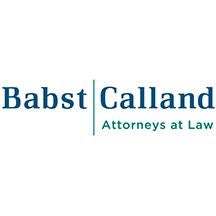On May 30, 2024, Vermont Governor Philip Scott allowed S.259, An act relating to climate change cost recovery, to become law without his signature. S. 259, entitled the Climate Superfund Act, will require the development of claims to shift the cost of alleged climate-related impacts in Vermont onto the companies that produced fossil fuels responsible for greenhouse gas (GHG) emissions.
This bill is the first of its kind to become law in the United States, and similar legislation is pending in Massachusetts, New York, and Maryland. Borrowing some concepts from the Comprehensive Environmental Response, Compensation, and Liability Act of 1980 (CERCLA), or Superfund, which imposes strict liability for cleanup of contaminated sites on potentially responsible parties, this Act seeks to assign financial liability for climate-related impacts on the companies that extracted and refined petroleum products and other fossil fuels. Like CERCLA, the Act imposes retroactive liability on entities having conducted lawful business activities in the past.
Vermont’s Act establishes a Climate Superfund Cost Recovery Program to be administered by the Climate Action Office of the Agency of Natural Resources. The Vermont Treasurer will be required to assess the cost of GHG emissions to the state and its residents during the period January 1, 1995 through December 31, 2024. The Agency of Natural Resources will apportion liability and make cost recovery demands to “Responsible Parties,” those entities engaged in the trade or business of extracting fossil fuel or refining crude oil responsible for more than one billion metric tons of covered greenhouse gas emissions during the covered period.
Funds received from these companies will be deposited in the Climate Superfund Cost Recovery Program Fund and used for climate change adaptation projects. A Responsible Party’s first payment would be due six months after the cost recovery demand is made and should be at least 20% of the total demand. Subsequent payments of not less than 10% of the total demand would be due annually thereafter until the entire demand is received.
The Act also requires the Agency of Natural Resources to submit a report to the General Assembly on or before January 15, 2025 regarding the feasibility of and progress towards implementing the requirements of the Act. The Agency will also be required to adopt rules implementing the Act. Rules regarding methodologies to identify Responsible Parties and determine their share of covered GHG emissions and requirements for registering entities that are responsible parties must be finalized by January 1, 2027. A rule for the adoption of a Resilience Implementation Strategy to identify and prioritize climate change adaptation projects and disperse funds must be finalized by January 1, 2026.
Instead of signing or vetoing the bill, the Governor allowed the bill to become law after five days and sent a letter to the Vermont General Assembly. This letter expressed his concerns that the $600,000 appropriated by the legislature to cover implementation of the Act would be inadequate to complete the required cost analysis, which he expects to meet significant scrutiny and legal challenges.
Legal challenges to both the law and any regulations promulgated pursuant to it are certainly expected. Challengers are likely to target the methodologies used to determine Responsible Parties, the limited scope of definition of Responsible Parties and the decision to hold what may be just a few companies liable for the entire impact of GHG emissions, and the lack of connection between the adaptation projects and the actions of the Responsible Parties.
It is also worth noting that the Climate Superfund Act is not the state’s only active initiative to hold energy companies liable for their activities within the state. The state also filed a consumer protection lawsuit in Vermont state court in 2021 against a dozen oil companies, alleging deception and unfair business practices related to the sale of their products. Vermont v. Exxon Mobil Corp. (Vt. Super. Ct.). The defendant oil companies removed the case to federal district court in Vermont, but, like other similar lawsuits, it was ultimately remanded back to state court in February 2024. Vermont v. Exxon Mobil Corp., 2:21-cv-00260 (D. Vt.). In this litigation, Vermont seeks the defendants to “disgorge all funds acquired and/or retained as a result of any acts or practices found to be unlawful,” among other relief sought.





 />i
/>i
